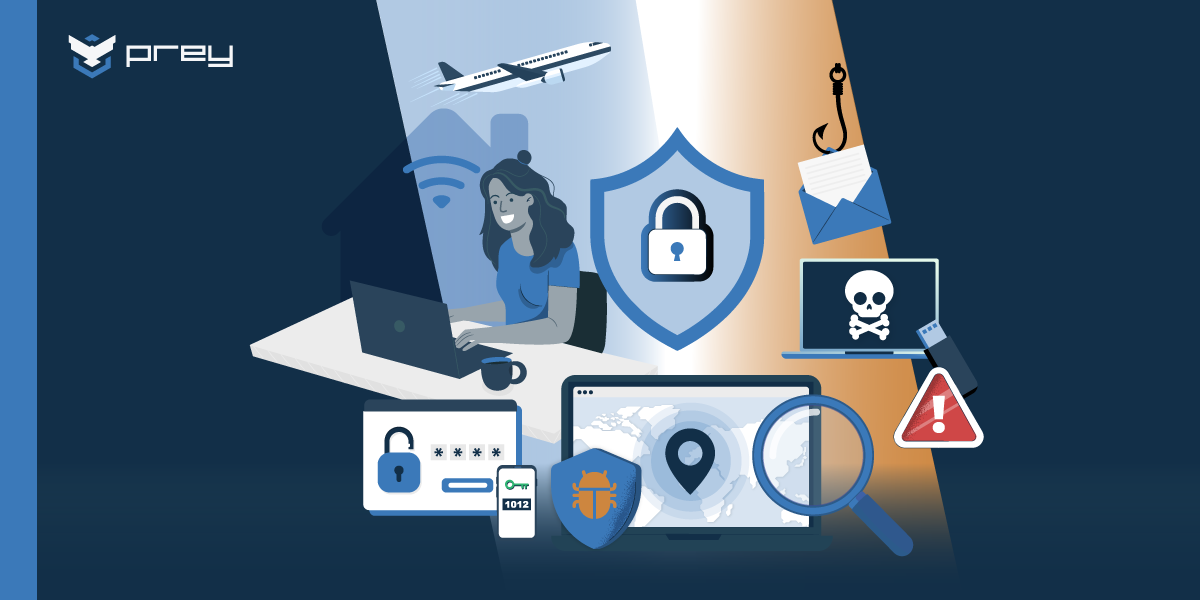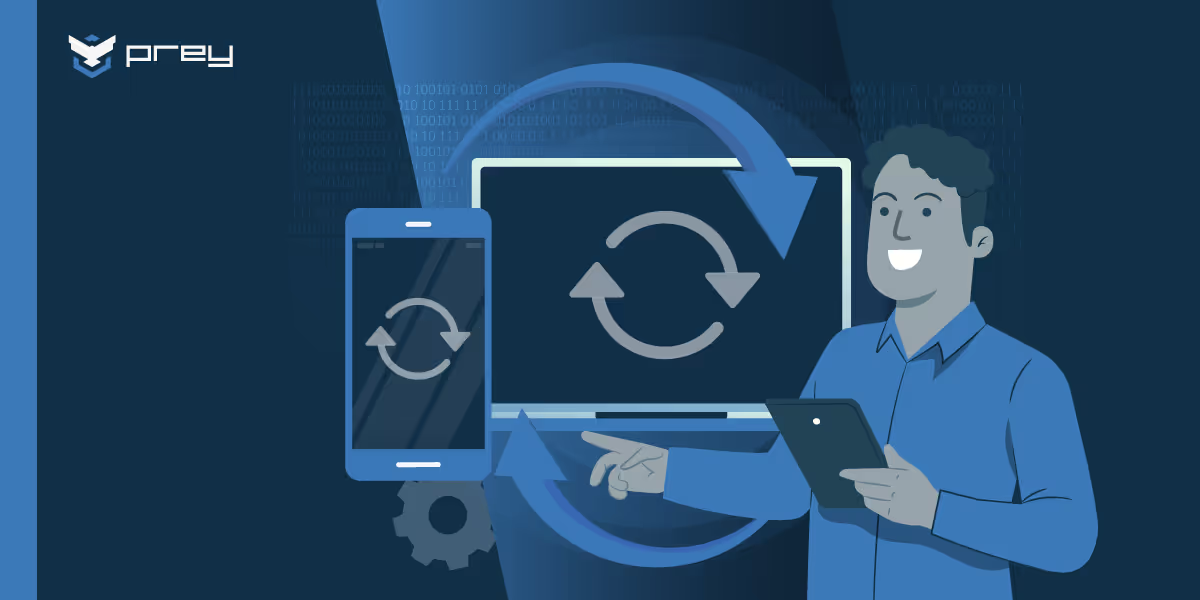The Health Insurance Portability and Accountability Act (HIPAA) plays a vital role in protecting the privacy and security of patient information within healthcare. This regulation ensures that sensitive data, such as Protected Health Information (PHI), is managed responsibly and remains safe from breaches or unauthorized access. The healthcare industry faces unique data management and compliance challenges, including the need to meet strict healthcare regulations and maintain accurate patient data. Since staff devices often store or access PHI through apps, emails, or electronic health records, managing these devices can be challenging. Mobile Device Management (MDM) solutions simplify this process by securing and organizing devices effectively, supporting healthcare data management to ensure accurate patient data, improve quality care, and reduce errors.
What exactly is an MDM? A Mobile Device Management solution is software designed to oversee and manage mobile devices like smartphones, tablets, and laptops used within an organization. In healthcare, it ensures that devices remain compliant with security protocols, receive necessary updates, and restrict unauthorized access, giving IT teams better control over staff devices while reducing the risk of data leaks. MDM also helps healthcare organizations comply with evolving healthcare regulations and plays a crucial role in reducing errors related to patient data.
Why is HIPAA compliance important?
HIPAA compliance is essential for safeguarding the privacy and security of patients’ sensitive information, including upholding data privacy standards and protecting healthcare information, fostering trust between healthcare providers and their patients, and protecting organizations from legal liabilities, data breaches, and potential penalties.
Adhering to HIPAA ensures that healthcare providers operate responsibly and securely in an increasingly digital environment.
Challenges in maintaining HIPAA compliance
Ensuring HIPAA compliance presents unique challenges for IT teams in healthcare, as they must protect sensitive data across multiple devices and systems while also managing data from different sources such as healthcare devices, monitoring equipment, and medical notes. Balancing security requirements with staff productivity requires careful planning, especially given the risk of patient data errors and the importance of data quality as cyber threats grow and regulatory demands evolve.
Effective data stewardship plays a critical role in ensuring data quality and reducing patient data errors, supporting both clinical and operational workflows.
IT Teams in healthcare face:
- Device management across multiple platforms: Staff uses multiple devices, personal and work-issued smartphones, tablets, and laptops.
- Securing remote and on-site access: Remote work and telehealth make secure access to PHI tricky.
- Monitoring data access and usage: Only authorized people accessing data at the right time.
- Keeping up with changing regulations: Staying up to date with HIPAA rules and all protocols.
- Handling data breaches: Quick response to breaches and meeting HIPAA reporting requirements.
- Training staff on compliance: Educating employees to recognize threats, use devices safely, and not mishandle data.
- System Uptime: Making sure compliance doesn’t impact critical healthcare operations.
- Multiple operating systems: Managing security across devices running different operating systems, iOS, Android and Windows makes standardization tough.
- Managing provider data and records: Ensuring the quality, deduplication, and integration of provider data, provider records, and provider information from disparate systems like EMRs, NPPES, and claims is challenging. Advanced solutions are needed to create a trusted provider master data repository and maintain accurate, unified provider information.
- Vendor Compliance: Making sure third-party providers and solutions also comply with HIPAA.
- Matching patient data from source systems: Accurately matching patient data across various source systems is essential for data accuracy and interoperability. Master patient index (MPI) and enterprise master patient index (EMPI) solutions help link patient information and reduce identity errors that can impact patient safety.
Where MDM can help with HIPAA compliance
In healthcare, device management solutions are key to HIPAA compliance by ensuring every device used to access or store PHI meets strict standards. MDM solutions give IT teams the tools to monitor, control, and protect devices. MDM solutions also help create a consolidated and accurate view of data collected from disparate sources, such as EHR systems, external directories, and claims systems, which is essential for effective healthcare analytics and patient care. Additionally, advanced analytics can further enhance device and data management, supporting HIPAA compliance through more sophisticated analysis and insights.
Key MDM Features for HIPAA Compliance
- Remote wipes/encryption: Allow IT teams to remotely erase or encrypt data from lost, stolen, or rogued devices to prevent unauthorized access to PHI.
- Device tracking: Monitor the location and usage of devices to quickly identify and address potential security threats.
- Inventory management: Keep an up-to-date record of all devices in the network, ensuring no unmanaged devices access sensitive information.
- Onboarding and offboarding support: Streamline the setup of new devices and securely remove access when employees leave.
- Access control policies: Enforce security policies such as encryption and multi-factor authentication on all devices.
- Support for care teams and healthcare staff: Ensure secure communication and device access for care teams and healthcare staff, empowering them with reliable tools to deliver high-quality patient care.
- Compliance monitoring: Automatically check devices for adherence to security protocols and notify IT teams of any vulnerabilities.
Implementing an MDM solution in your healthcare organization
Introducing MDM in your healthcare organization requires a structured approach to ensure it meets HIPAA regulations and your security needs. A well-planned implementation will help streamline device management, protect patient data, and enable IT teams to be compliant while supporting staff productivity. Integrating data from multiple data sources is crucial, and utilizing a master patient index can provide a clearer picture of patient information across your systems.
How to Implement MDM in Healthcare
- Assess your situation: Identify the devices in use or need, deployment model, security risks, specific HIPAA compliance requirements, and the specific business needs of your healthcare organization.
- Choose the right MDM solution: Evaluate MDM platforms based on features like encryption, remote action capabilities, device tracking, and compliance monitoring.
- Involve key stakeholders: Collaborate with IT teams, compliance officers, department heads, and providers to align goals and processes, ensuring the solution meets the needs of those who treat patients.
- Develop security policies: Create clear policies for device usage, access control, and data management that reflect HIPAA standards.
- Configure the MDM Platform: Set up the MDM system, including user permissions, encryption settings, and compliance alerts.
MDM Best Practices for Healthcare
Implementing MDM is just the first step. Keeping it effective over time requires ongoing effort to adapt to new technology, staff needs, and regulatory changes. Healthcare companies use MDM to manage medical records efficiently and achieve better patient outcomes by ensuring accurate, integrated, and secure patient data across systems. Here are the best practices to keep your MDM solution efficient, secure, and HIPAA compliant.
- Pilot the solution: Test the MDM with a small group of users to identify potential issues and gather feedback.
- Train employees: Provide training on device usage policies, security protocols, and MDM features to ensure staff compliance.
- Roll out organization-wide: Deploy the MDM solution across all departments, ensuring smooth integration with existing systems.
- Monitor and adjust: Monitor device compliance and behavior. Make adjustments based on feedback and changing regulations.
- Review and update policies: Regularly review security policies and MDM settings to stay aligned with HIPAA requirements and technological changes.
- Ensure effective data management: What makes MDM effective in healthcare is its ability to unify medical records, support data governance, and enable healthcare companies to deliver better patient outcomes through reliable, integrated data.
Conclusion
MDM is key to HIPAA compliance - securing devices, managing access, and protecting data. Prey takes it further with device tracking, remote locking, and data wiping so healthcare providers can protect PHI on personal and work-issued devices. MDM also plays a crucial role in managing provider records and provider information, ensuring data quality, compliance, and security across healthcare organizations. With Prey, you can be compliant fast and minimize the risk of lost or stolen devices.
IT teams looking to simplify device management and strengthen their data security should explore Prey’s MDM solutions. By taking the first step toward implementing Prey, organizations can gain greater control over their devices, reduce risks, and ensure that compliance becomes a seamless part of daily operations—ultimately building trust with both patients and staff.






